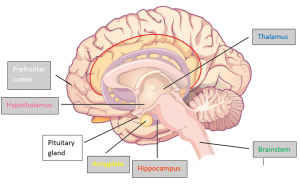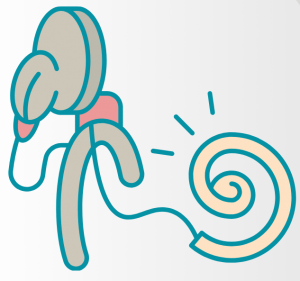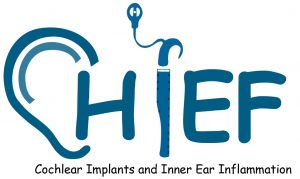Our research
We focus on many areas related to understanding and managing hearing problems.
Our research projects
- Exploring the links between hearing loss and susceptibility to developing anxiety

- National Online Survey: Should D/deaf adults in the UK be offered one or two cochlear implants?

- CHIEF study: Cochlear Implants and Inner Ear Inflammation

- SO-Together Health: Working together within Southampton for better hearing and brain health

Patient and public involvement and engagement (PPIE)
We are committed to carrying out meaningful and enduring patient and public involvement and engagement
Read about the development and evaluation of our PPIE group.
We engage with our local community to raise awareness of hearing loss and the links between hearing and brain health in older adults.
These are some of the projects we have been or are still working on:
- listening to local communities to understand how to reduce inequities and barriers to risk reduction for better brain health
- increasing awareness of routes to better brain health through dialogue with underserved communities
Patient and public involvement and engagement (PPIE): How valuable and how hard? An evaluation of ALL_EARS@UoS PPIE group 18 months on
Kate Hough
Deaf awareness strategies in healthcare
Kate Hough
Cochlear implants
Understanding barriers and motivators to cochlear implantation in older adults
We explore the barriers that stop people getting an implant. We learn what has helped people make the decision to get an implant.
Medical student, Alisha Giby, did a service evaluation of USAIS patients over 60 investigating the factors impacting access to cochlear implantation. She investigated factors including:
- patient demographic
- socioeconomic status
- referral pathways
Using computers to predict current flow from cochlear implant electrodes as a way to improve diagnosis for people with a cochlear implant
We developed the Recording of Electrode Voltages (REVS) test, measuring the current spread from cochlear implant electrodes. It can tell us of implants are working or not.
The REVS test will improve diagnosis of problems with implants, in people of all ages.
Improving the sensitivity of cochlear implant integrity testing by recording electrode voltages with surface electrodes
Mary Grasmeder
Piloting the recording of electrode voltages (REVS) using surface electrodes as a test to identify cochlear implant electrode migration, extra-cochlear electrodes and basal electrodes causing discomfort
Mary Grasmeder
Using real-world data to improve cochlear implant outcomes
We are using health data to figure out why some individuals do better with their implants than others.
Callum Findlay is carrying out work in this area for his PhD.
Leveraging real-world data to improve cochlear implant outcomes: Is the data available?
Callum Findlay
Tissue response to cochlear implantation
We are trying to understand the tissue response to cochlear implantation and what factors influence this response.
After a cochlear implant is surgically inserted into the inner ear, there is a wound healing response. For most people, this response is normal and the wound heals well to leave a layer of tissue or fibrosis. For some people, the tissue does not heal as it should, resulting in more fibrosis. This can affect how well people hear with their implant.
Inflammation at the tissue-electrode interface in a case of rapid deterioration in hearing performance leading to explant after cochlear implantation
Kate Hough
Macrophages in the cochlea: An immunological link between risk factors and progressive hearing loss
Kate Hough
Hearing loss and dementia
We are interested in the biological mechanisms of hearing loss and how this may interact with other health conditions, particularly those more common in older people such as dementia.
Working with local clinicians, we have been carrying out a Quality Improvement Project to tackle hearing loss in dementia services and ensure hearing is screening for when people go for a memory assessment.
A third year medical student, Ella Woodman, did a project to explore barriers and enablers of hearing aid use in people living with dementia, from the perspectives of relatives.
